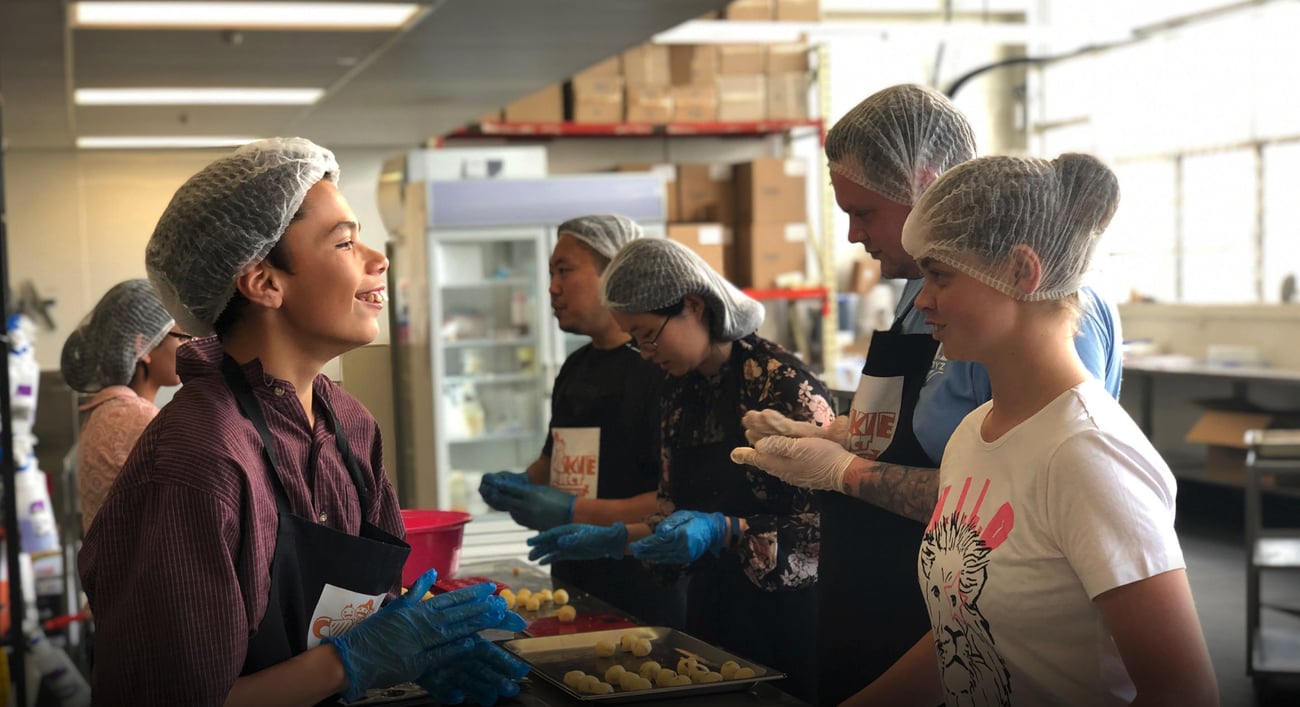The Cookie Project is connecting consumers with their bakers to break down social stigma around disabilities

More than one million people in New Zealand have a disability, and yet just 22 percent of these people are employed. That means more than 250,000 people in New Zealand are looking for employment, but unfairly facing stigma about their condition.
Yet a study done by the Blind Foundation in 2017 found that adding 14,000 disabled people to the workforce would help to boost New Zealand’s economy by $3 billion.
One company exploring the untapped empowerment of this demographic is The Cookie Project. It’s a social enterprise that was founded by Graeme Haddon, who is caregiver to three disabled youths, and Eric Chuah 2018 to provide employment pathways for its staff and educate the public on their capabilities.
The company has an inclusive employment framework for the disability community by having a pan-disability recruitment policy and never asking for resumes or conducting interviews.
The benefits it touts for employees include fair employment (being paid a fair wage), meaningful employment (learning different roles and skills, while also growing self confidence), fun employment (each baking session is fun and engaging) and social inclusion (a buddy system between a disabled person and an adult volunteers helps foster a sense of acceptance and belonging).
The cookies are made using Eat My Lunch’s kitchen space and using premium butter provided by Lewis Road Creamery, Trade Aid and Pic’s Peanut Butter, making the initiative a truly collaborative affair.

The Cookie Project now counts 23 people with disabilities on its roster and another 40 on the waiting lists, with over 678 hours of paid employment generated at minimum wage ($17.70 an hour).
Now, the company has rolled out what it says is New Zealand’s first ‘real person’ traceable packaging through QR codes created pro-bono by digital marketing agency Quentosity.
Knowing how complex it can be to understand what different disabilities mean, the co-founders wanted to help educate the public by breaking it down into four categories: sensory, physical, cognitive, and mental health.
Each category is represented by a different colour used in the QR code on the packaging, so the public can learn more about the different types of disabilities when they scan the sticker or visit The Cookie Project’s website.


By scanning a QR code with their smartphone, users can see who made their cookies, leave a message of encouragement, or request the person also create their next batch of cookies.
“Everything we do at The Cookie Project is human-centred around our bakers,” Chuah says.
“We wanted our packaging to be a platform where customers and potential employers can connect with our bakers. We’re proud to help drive this conversation and show New Zealand that people with any type of disability can contribute to society and should be treated equally as such.”
“We believe two key steps in breaking down social stigma for the disabled community is awareness and education. By making disability easier to understand, we hope this is the first step towards inclusion,” his co-founder Haddon adds.

The Cookie Project co-founders Eric Chuah and Graeme Haddon
From Quentosity’s side, the digital marketing agency decided to work pro-bono on the project to create an ecommerce website, branding, visual elements and icons, as it was moved by the mission. The design has been selected as a finalist in the Public Good category at the 2019 Best Awards.
As for retail, The Cookie Project’s products will be available in New World Metro on Queen St and other selected Auckland stores from September onwards, and then rolled out nationwide later in the year.





